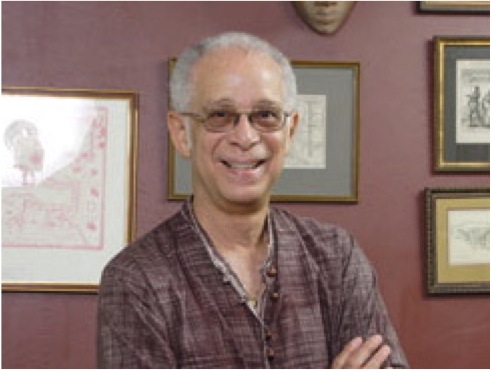Dr Norman Girvan, Professor Emeritus of the University of the West Indies, is one of the foremost experts on Caribbean political economy. Girvan, who was formerly the Secretary General of the Association of Caribbean States, was appointed last year as the United Nations Secretary General’s Personal Representative on the Guyana-Venezuela Border Controversy. Caribbean Journal talked to Dr Girvan about his advice for new CARICOM Secretary-General Irwin LaRocque, what the region can learn from the European Union and the necessity of a directly-elected Caribbean parliament.
New CARICOM Secretary-General Irwin LaRocque takes office today. What advice would you give him?
I would advise him to put before the Heads of Government immediately a proposal of the reform of governance of CARICOM, to give the direction of giving legal force to the decisions of the Heads of Government and other organs of the community in certain prescribed areas. Those areas have been identified in a paper laid before the Heads of Government by the previous chairman of the Community, Prime Minister Tillman Thomas of Grenada. The proposal for the reform of governance would also include a proposal for the establishment of an executive authority to oversee the implementation of the decisions of the Heads of Government in the context of the provision of legal force to those decisions.
I would also advise him to review and develop the proposals for popular involvement of the people of the Community, in the decision-making of the community, so that the people of the Community may feel a genuine sense of ownership in the business of CARICOM.
What have been the major roadblocks to integration thus far?
The principal roadblock has been the preoccupation of the governments of member states with retaining absolute sovereignty in matters relating to integration, which has resulted in a continual stalemate in dealing with proposals for the reform of governance. It is now time to acknowledge that some pooling of sovereignty by the member states will be necessary if CARICOM is to move forward.
What can CARICOM learn from European Union integration?
Well, CARICOM can learn from the European Union that even large countries, each one of which is several times the size and economic weight of CARICOM, have felt it necessary to pool their sovereignty in certain areas to effect integration. [These are] large countries, which have many languages, and which have historically been divided by war, and have found it necessary to do so. They have found it necessary to do so to give legal force to the provisions of the European Union and to have a European Parliament, to ensure popular involvement, and to have a European Commission to ensure implementation, or be responsible for implementation. If the EU can do it, there is absolutely no reason why CARICOM cannot do it. The combined population of CARICOM is the equivalent to less than that of the leading member states of the European Union. So the only thing that is holding us back is the failure of political will to rise above the preoccupation with insular sovereignty.
Do you foresee the possibility of a Caribbean Parliament?
I think it is a necessity — not just a possibility but a historical necessity. Because we need to have a mechanism by which the ordinary people are involved in the affairs of the Community, and I see the necessity for such a parliament. I think it should be directly elected, and that it should have space for representation of the civil society partners, as well as the directly-elected representatives, so that the business community, labour, the churches, and other social partners should be represented as well as the directly-elected delegates.
What is your outlook for CARICOM’s next few years?
Well, it’s either move forward or perish as a community — move forward and strengthen the community and the direction in which I have suggested, or face increased fragmentation and marginalisation globally. We can’t avoid that any longer, and it’s either one or the other.
